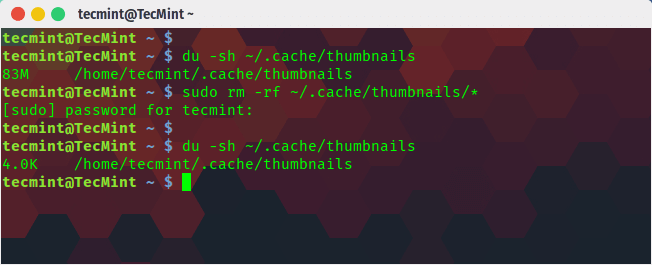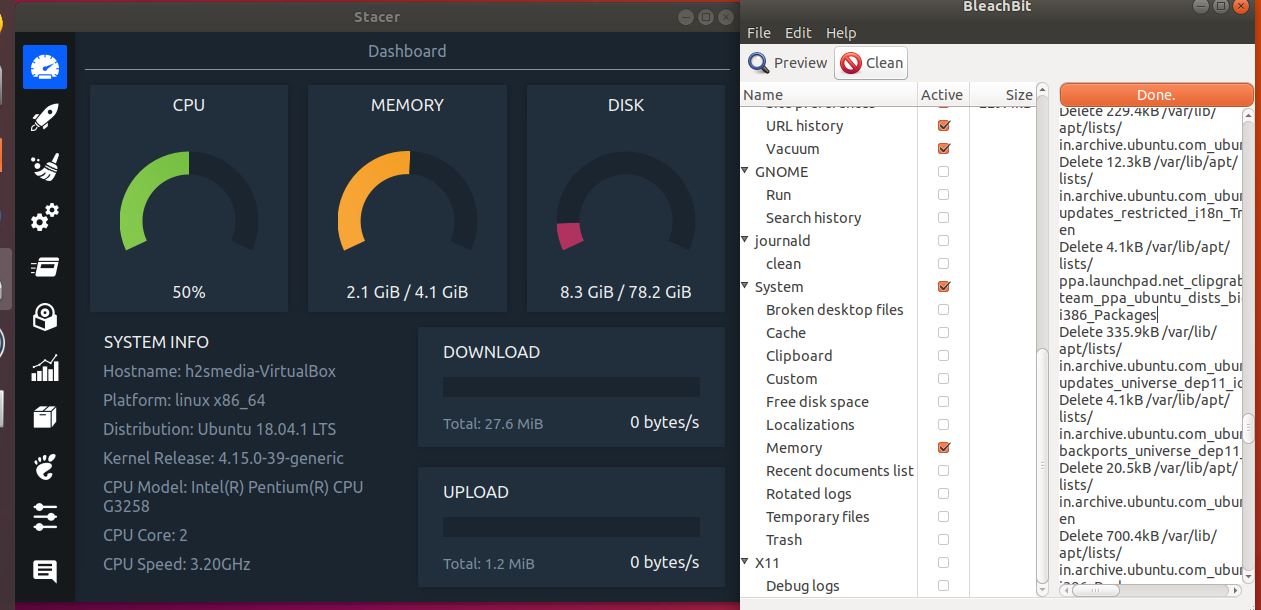

- BEST JUNK CLEANER FOR UBUNTU HOW TO
- BEST JUNK CLEANER FOR UBUNTU INSTALL
- BEST JUNK CLEANER FOR UBUNTU PC
- BEST JUNK CLEANER FOR UBUNTU FREE
- BEST JUNK CLEANER FOR UBUNTU WINDOWS
BEST JUNK CLEANER FOR UBUNTU WINDOWS
Designed for Linux and Windows systems, it wipes clean 90 applications including Firefox, Internet Explorer. Ubuntu and Debian has a handy tool that takes care of such jobs in a single command. and discard junk you didnt know was there. Similarly, your system will get kernel updates and then the older kernels won’t be of much use. Remove old kernel headers and unnecessary packagesĪs you keep updating your system, it will collect unnecessary packages and dependencies that are not needed anymore. Some tips are general and can be used in any Linux distribution. Some of these tips are more for Ubuntu servers because that’s what I use. If you are in search for a more in depth cleaning, use the Ubuntu Tweak Utility.
BEST JUNK CLEANER FOR UBUNTU FREE
In this tutorial, I’ll share some easy to use actionable tips to free up a few GBs of disk on your Linux server. To clean some packages laying around, run the following: sudo apt-get autoremove sudo apt-get clean sudo apt-get autoclean. This enables not-so-expert people, like me, to deploy and manage their own Linux servers.Īs you start to run your own server, you might feel the need to clean up your system from time to time to free up the valuable disk space. It analyses and deletes junk files, temporary files, browser history, cache, and emptying the recycle bin. sudo apt-get remove linux-image-xxxxxĪs an alternative, an easier way to clean up these old kernels is to use 'autoremove'.Deploying a Linux server is really easy these days thanks to the abundance of cloud server providers like Linode, Digital Ocean etc. BleachBit is a good alternative to CCleaner on Linux.

To get Sweeper installed, launch a terminal window on your Linux desktop by pressing Ctrl + Alt. Luckily, installing the Sweeper application on Linux is easy, given that it’s an application that sometimes comes with the KDE Plasma 5 desktop environment.
BEST JUNK CLEANER FOR UBUNTU HOW TO
Just replace xxxxx with the version of Linux you want to delete. Before we can go over how to use Sweeper to clean junk files on your Linux PC, you’ll need to set it up on your computer. Next, they must identify their oldest kernels and execute the following command to remove the previous versions. This allows us at each login to choose with which version of the Kernel we want to start the system, although by default it will always start with the most recent one.Īlthough the ideal would only be to work with a single Kernel, it is advisable to leave the current version and a previous one for any backup issue and delete all the others above.įor this we must type the following command sudo dpkg 'linux-image *' -list

var/cache/apt/srcpkgcache.bin Remove old kernels from the systemĪs we should know, the Linux Kernel is the heart of the system, but it is also known that it is updated every so often, so they are released new versions which are installed in the system displacing the old versions which remain stored without being eliminated. var / cache / apt / archives / partial / * Clean Up Junk Files In Ubuntu Using Ubuntu Cleaner App caches. It scans your whole computer to clean up junk files, speed up your PC, and boost its performance.
BEST JUNK CLEANER FOR UBUNTU PC
If you’re on a slow, capped or intermittent connection you may want to consider skipping this step. Keep your PC clean and running like new with CleanMyPC. The apt clean command removes ALL packages kept in the apt cache, regardless of age or need.
BEST JUNK CLEANER FOR UBUNTU INSTALL
This command will clean up the following system directories: Just install Ubuntu Cleaner and purge-old-kernels utility and get rid of the junk files and older kernels which are no longer necessary. To clean the apt cache on Ubuntu simply run the following command. To remove all this garbage from the system, just run the following command from the terminal: sudo apt-get -s clean These packages are stored in the / var / cache / apt / archives folder. So cleaning these packages is recommended to save disk space, improve your PC performance, and speed up boot times. If the installation was successful, Ubuntu does not delete these packages and they remain cached. Whenever some applications or even system updates are installed, these are downloaded by the package manager and then stored in the cache before installing them, in case they need to be installed again. Quick clean up sudo apt-get autoremove sudo du -sh /var/cache/apt clean apt cache sudo apt-get autoclean sudo apt-get clean journalctl -disk-usage du -h.


 0 kommentar(er)
0 kommentar(er)
